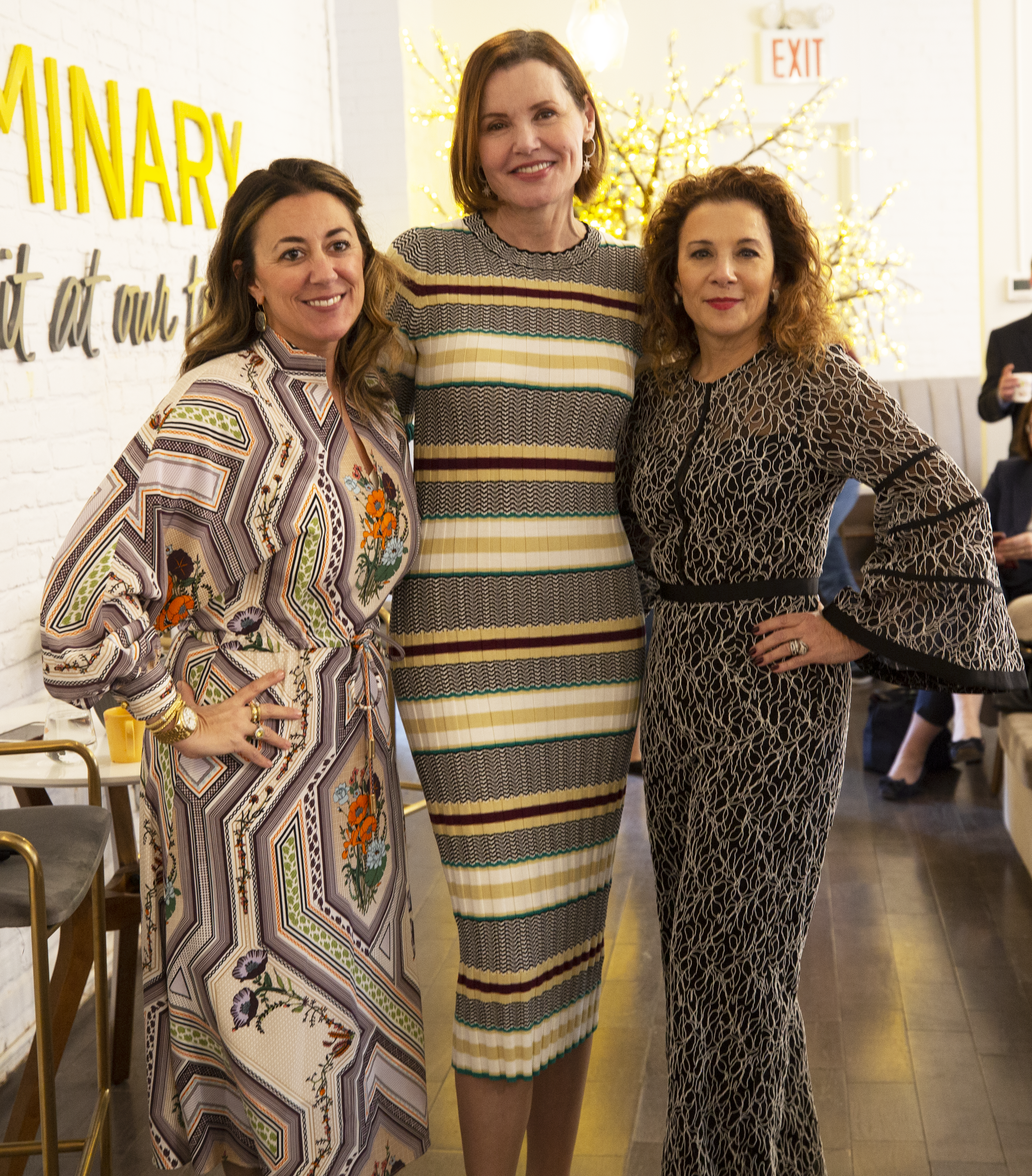Calling all girls…quick, name your favorite show. How many lead characters are women or girls? How many look like you and your friends? How many of you would like that number to be higher?
We thought so.
Well, girls – you’re in luck. Geena Davis has your back.
Realizing when her daughter was a toddler how many more male than female characters appeared in children’s TV and movies, Golden Globe and Oscar Award-winning actor Geena Davis (she recently received her second Oscar from the Academy’s Jean Hersholt Humanitarian Award for fighting gender bias in media) got to work. She started asking colleagues in the entertainment industry whether they were aware of a difference in the way male and female characters in children’s media were portrayed.
They weren’t.
Undeterred, Davis launched a non-profit organization, The Geena Davis Institute on Gender and Media, to examine the problem of gender bias and commissioned detailed research. When she presented the first data set to studio executives and production companies, she told a rapt audience last week at New York City’s Luminary, “They were horrified.” As the Institute’s website adds, “They had no idea how profoundly they were shortchanging women and girls.”
Since the Institute’s first full-blown study in 2008, their extensive research reports have examined gender balance and stereotypes in media and entertainment areas including YouTube advertising, girls’ leadership ambitions, STEM characters and brand mascots, with staggering results.
It’s not just that women and girls make up 51 percent of the population while the ratio of male to female characters has stood firmly at 3:1 for the last eighty years. Or that only two years ago, male characters across the top-grossing films spoke twice as often as female characters and only 27 percent of those female characters were depicted as leaders.
It’s the effect that these numbers can have on girls your age, at exactly the time when you are starting to envision your future.
“We give them so few opportunities to feel inspired by the female characters,” Davis says, speaking about girls in the trailer for her 2019 documentary This Changes Everything, and she built on that in her comments at Luminary. “Girls need to see it, so they can be it.”
“Girls need to see it,
so they can be it.”
Geena Davis
But, she noted with optimism, the needle is starting to move. “We are seeing gender parity in children’s television for the first time, and this is historic.” While the audience erupted with applause, panel moderator and Luminary founder Cate Luzio interjected, “Because of you. The data does help, but we have this historic parity in TV now because of you and your organization.”

“We went from being data-driven advocates to data-driven interventionists,” added the Institute’s CEO Madeline Di Nonno over more applause. “As brands and content creators become organizationally ready, we can provide an intervention using new machine-learning tools.”
“We get to become scientists now,” agreed Davis with a grin, explaining how programs like GD-IQ (Geena Davis Inclusion Quotient) measure various characters’ screen time and speaking time, and anticipating new tools (still being tested) that will be able to read scripts with an eye for diversity before any casting takes place. “Like Spellcheck for bias,” summarized Davis, and the room’s cheering could not be contained.
Pulling questions from the audience as the panel drew to a close, Luzio asked “What can we expect from the Institute in 2020?” Hinting at big announcements over the next 30 days, Di Nonno forecasted new studies that will address sizeism, ageism and masculinity in media, while diving into the gaming industry as well.
“Given what the Institute is doing under Geena’s leadership, it’s a natural fit to partner with Luminary. While our members come from all industries, learning and leveraging from the work the Institute is leading is critical as we advocate for better representation, opportunities and pay in the workforce – all issues that hinder women. Utilizing data the way Geena has creates best practices not just for the entertainment industry, but for all.”
Cate Luzio, Founder and CEO, Luminary
Reading a question submitted by middle school girls, Luzio asked the panel, “What can girls our age do to help make TV and movies look more like our friend groups – more girls from all ethnic backgrounds and more kids with disabilities? How can we tell movie companies we want this?” Di Nonno responded thoughtfully with, “Social media. If you’re over 13, use your voice on social media. All of these companies are there and paying attention.”
Paying attention to you.
Girls, your voice matters and the companies producing entertainment are listening. They are digesting the data being produced by the Institute and watching how you and your friends respond to new media.
Describing a conversation she had with an archery coach, Davis (at one time the nation’s 13th-ranked archer and a semi-finalist in the 2000 Olympic trials) relayed how boys used to outpace girls in archery participation until the release of two films: The Hunger Games and Brave. “Girls left the theater and bought a bow,” Davis said simply, and her meaning hung in the air.
The data matters.
What you watch influences what you can imagine. What you hear informs how you might speak. What you see impacts what you want to be.
So girls, pick shows and movies carefully and watch out for bias. Tell your friends, speak up on social and keep envisioning enormous futures.
Geena Davis has your back.


